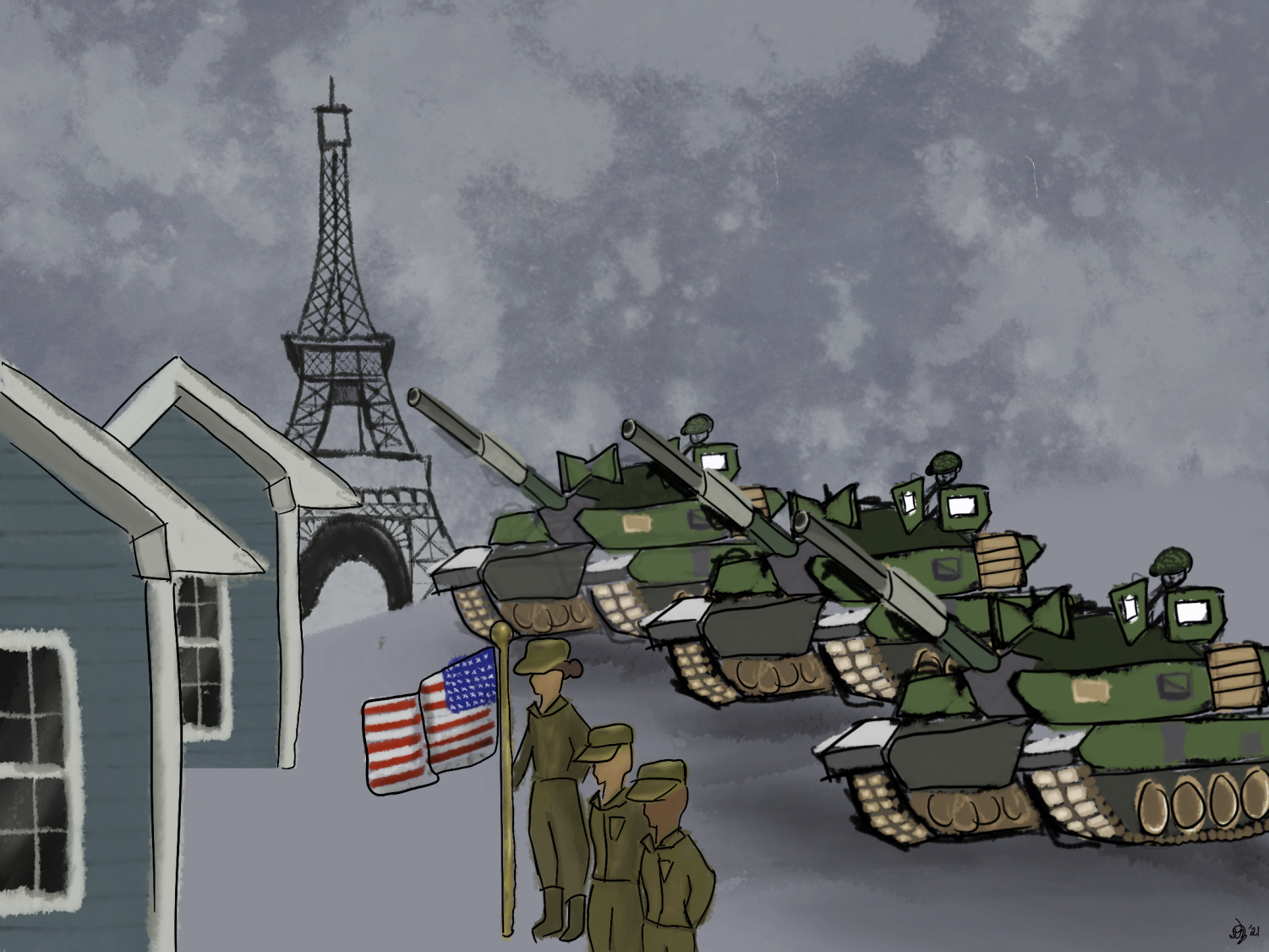
America is the world’s dominant power. With a celebrated culture, an excellent economy, and a mighty military, America reaches every corner of the globe. After World War II, America was left with no alternative but to assume the role of a world superpower. Over the last seven decades, she has solidified her position, partly by becoming more and more involved militarily on an international scale. Dubbed “The Long Peace,” the last seventy years have been some of the most peaceful in modern history, with fewer major conflicts and bloodshed even as other empires rose and fell around the United States. Yet, amidst this enduring period of tranquility, America has not faltered in maintaining its global militarism, with more than 100,000 American military personnel currently stationed overseas, according to the Defense Manpower Data Center. It makes no sense.
It makes no sense for America to have more than 20,000 military personnel in England and Italy — peaceful, stable democracies whose treaties with the United States go back decades. It makes no sense for America to have more than 30,000 military personnel in Germany — a conflict-free, economic powerhouse that has been one of our most steadfast global partners since the end of World War II. It makes no sense for America to have more than 50,000 military personnel in Japan — a harmonious, industrial island and staunch ally of ours whose own democracy today is a product of our inclination to instill other countries with self-governance. Just think about the 70,000 American military personnel who participated in D-Day, the largest amphibious invasion in history. That figure pales in comparison to the military manpower the United States operates on its allies’ own soil in the world today.
Yes, there are advantages in keeping some sort of military presence in almost every developed country; it keeps American interests in mind when policy is discussed and in the event of a war we’d be ready to rumble. These are both valid arguments, but they’re coming to matter less and less. Regardless of the size of her military, American interests will always be kept in mind. Our diplomatic resources, international significance on the world stage, and robust economic output guarantee this. What’s more is that with the modern transportation technology we have at our disposal, the American military could deploy a force almost anywhere within hours regardless of who our allies are or where our bases are. But stationing tens of thousands of troops in terrain that is both self-governed and friendly to the United States is not only nonsensical, but also increasingly wasteful.
The growth of sizable supranational organizations, general worldwide peace, and military transport technology has decreased the importance of large units of internationally stationed troops. One thing that hasn’t decreased is the cost. Defense spending in the United States currently weighs in at $700 billion, as reported by the New York Times, which amounts to the largest discretionary budget category for the U.S. government by far, and that only includes the numbers on paper. While some of this capital is undoubtedly spent on investing in valuable American infrastructure, such as developing new technologies or spacefaring implements, huge portions of cash flow out of the homeland to support military bastions on foreign territory that yield little benefit in return. Moreover, these raw figures do not even begin to address other major issues, such as exactly how much funding is being directed to support shadow operations involving military personnel in nations not on the best of terms with the United States. America must reconsider military spending and a big part of that will be re-evaluating how many troops are deployed where. I don’t advocate for America to completely withdraw all internationally stationed military personnel, but we can and should seriously decrease the number of internationally deployed soldiers.
Shrinking the amount of unnecessary overseas military personnel is a job for the here and now. Not only is this excessive military accumulation clearly unnecessary, but it is also shadowed by the hundreds of billions spent to secure territory that is already part of a global coalition led by the United States. A country with more than 28 trillion dollars of debt should not spend close to a trillion of those dollars on its military alone. It’s simple math. Unless we do something about it, the debt will outlast our lives and the lives of our children. Reducing the military budget by bringing home soldiers from peaceful, stable countries is a step in the right direction.




